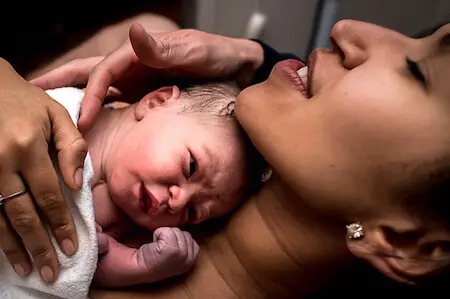An ‘accident of birth’ is the consequence of the circumstances into which a person is born. For example, a prince will probably have a different life to a pauper or an Inuit to a Kalahari bushman. The term may also be applied to some innate talent that a person has by virtue of the DNA they inherited from their parents. For example, “LeBron James’ success at basketball was, in part, due to the accident of birth of growing to 6 feet, 8 inches tall”.
Accident of birth
What's the meaning of the phrase 'Accident of birth'?
What's the origin of the phrase 'Accident of birth'?
The phrase ‘accident of birth’ isn’t a recent coinage; people have been using the expression since at least the 17th century.
Of course, how much the circumstances of one’s parents at the time of your birth has varied across the generations and differs from one culture to another.
Soon after his election as US President in 2020 Joe Biden inscribed on the wall with “From this house to the White House”. Other cultures have more prescriptive limits on who can become head of state.
While accidents of birth apply to us all and no one is immune to the effects that our parents and our culture pass to us, those effects are no better demonstrated by the consequence of being born into a royal or noble household.
Had an accident of birth intervened such that Biden had been born in Scarborough, Yorkshire rather than Scranton, Pennsylvania, he would have had little chance of becoming King Joe I of the United Kingdom.
When ‘accident of birth’ was coined in England in the 1600s the system of primogeniture was unquestioned. That decreed that hereditary titles, and the wealth and power that goes with them, are passed to the eldest male offspring. For instance, Henry VIII had three children before Edward VI, the child who succeeded him to the throne. These were: Mary Tudor, Henry FitzRoy and Elizabeth Tudor. The two girls were superseded by Edward because they weren’t male and Henry FitzRoy because he was illegitimate. Those accidents of birth had repercussions in English history that continue to resound today.
Even now, while primogeniture as applied to royal succession in the UK was abolished in 2011, it will take many years to become inconsequential. Princess Anne, who is Queen Elizabeth’s second child is only 15th in line to the throne.
The first use of the phrase in print that I can find is from the Kansas newspaper The Lyons Daily News, October 1905:
In Hereditary Monarchies no care at all is taken of the Commander: He is not chosen, but comes by chance. The advantages of popular Governments… are as much above those of Monarchies, as the prudence of choice surpasses the accidents of birth.
See also:
The history of “Accident of birth” in printed materials
Trend of accident of birth in printed material over time
Related phrases and meanings
Browse more Phrases
About the Author

Phrases & Meanings
A-Z
A B C D E F G H I J K L M N O P Q R S T UV W XYZ
Categories
American Animals Australian Bible Body Colour Conflict Death Devil Dogs Emotions Euphemism Family Fashion Food French Horses ‘Jack’ Luck Money Military Music Names Nature Nautical Numbers Politics Religion Shakespeare Stupidity Entertainment Weather Women Work
How did we do?
Have you spotted something that needs updated on this page? We review all feedback we receive to ensure that we provide the most accurate and up to date information on phrases.
